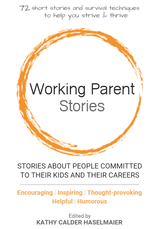|
Submitted by Lacie Martin Working parents who want to earn money on the side may want to consider these five ways to make bank.
Establish a Firm Foundation Whatever direction you choose, starting out properly ensures you don’t get into any trouble with your new venture, and prepares you for future growth. Begin by verifying that your location and vocation don’t require any special permits. Some areas limit where businesses can be established, and some industries require certifications. Along those same lines, you should also consider forming a limited liability company for your business. In addition to protecting your personal income from your store’s income and liability, starting an LLC can also result in tax advantages and less paperwork. The rules and regulations covering LLCs vary from state to state, although this part is simplified by partnering with a formation service. And while it might feel like something only a bigger company would require, take the time to draw up a business plan. It’ll help you frame your goals with logical steps, and if you need any seed money, it’ll help to impress lenders. Working and parenting is a challenge and a little extra cash sometimes enables you to purchase a little peace of mind. Why not look to the Internet for a bank account boost?
0 Comments
A while back I met a young (white) woman at a party. During the course of a getting to know each other conversation, she said that she wished she had lived during the US Civil Rights era so that she could have been a part of that movement. I was taken aback. I was a young child during some of those later years and feel only gratitude for those who did the heavy lifting. It didn't look glamorous or fun, and progress appeared to be expensive for many involved. I don't remember witnessing too many experiences I'd wish on anyone.
Over the years, I've thought a lot about that conversation. It caused me to recognize that movements are often costly, not everyone is capable of rising to the occasion (to drive for change), and many seemingly well-intentioned people impede progress if only via their indifference. I often ask myself questions like, "What are the most important movements occurring now?", "Who most needs my support?", "How am I most qualified to help?", and "What can I do to leave the world in better shape than I found it?" As a busy working parent, I tried to make contributions, but never felt like there was enough time to do all of the things I wanted to do. Then, a few years ago, I retired from a demanding career in high tech. Now I have more time. More time to think, more time to help, and more time to just be. Recently, I started noticing that more women are complaining about the gender wage gap. These women feel strongly that their daughters should have the same opportunities as their sons, and they want all of their children to be compensated fairly. Interestingly, the vast majority of the women speaking out either aren't employed or they're underemployed. When I mentioned this to my husband recently and asked why women are starting to complain more, he speculated, "My guess is that they've been complaining all along, but you were too busy trying to create opportunities and close the wage gap to notice." The he reminded me of the Amelia Earhart quote: "Never interupt someone doing what you said couldn't be done." Change is hard, and progress is rarely the result of a request (or a complaint). Driving real change takes effort, and it often requires sacrifice. Parents who want their children to have many opportunitites and receive fair compensation can rarely avoid effort and/or sacrifice. The parents best positioned to drive these changes are the ones with the most opportunities and capabilities. Could that be you? If so, here are some things you can do to drive changes that will benefit your children:
It's not reasonable to expect our daughters to enter a workforce that treats them fairly, if we're not willing to help drive the changes we want to see. As Joseph Ranseth encouraged, "Be the change you want to see in the world." Related Story: -- Unpaid Parental Leave Inspired by Penny Wirsing, 2019 President of SWE Is there a typical "working parent"? Maybe. But many people have unique situations. It's easy to meet someone and make assumptions, but often those assumptions are wrong, and the reality of someone's situation contains some unexpected elements. That's what happened recently when Penny Wirsing, the 2019 President of the Society of Women Engineers (SWE), spoke at the Michigan State University College of Engineering Commencement Ceremony. Her speech was encouraging and inspiring. So much so that we contacted her and asked if we could share the content with Working Parent Stories readers. One thing Penny didn't mention in her speech, and it supports the point that assumptions can be inaccurate, is the story about how and why she became an engineer. While she was a trailblazer at the time she obtained her degree, there is more to her story. Before Penny started college she married, had a daughter, and divorced. As a single mother, she became a secretary in order to support her small family. It didn't take long for her to realize that she would not be able to live the life she envisioned for her daughter and herself on a secretary's salary, so she headed in another direction and started down the path to pursue an engineering degree. She started taking community college classes as she continued working. That enabled her to attend evening classes while she countinued to work full-time. And the community college courses were less expensive than those offered at universities. While working full-time, she completed enough courses to enter Michigan State University (MSU) as a junior. While there, Penny felt as though she didn't fit in with the other students. Only about 25% of the students were female back then, but it was her status as parent and breadwinner that made her feel the most out-of-place. As she juggled a job and parenting with her classes, the other students were juggling their coursework with dorm living and other extracirricular activities. Most would agree that pursuing a college degree is challenging and that parenthood is challenging too, but few of us attempt to do both at the same time. Penny said she was able to pull it off by focusing on things one step at a time. A benefit of Penny's situation was that while she was a student, she was also a teacher with a very attentive pupil; her daughter. Her daughter learned that if you want to do something, and you're willing to put in the work, you are likely to get it done. Penny, like most parents, could have told her these things, but she believes that showing her had a more meaningful impact. And it appears to have worked, given that her daughter is now grown and pursuing a career of her own as a Federal Attorney. Sometimes it's easy to forget that while we're working and learning, we're also teaching. And we're never sure exactly who is watching or who will learn the most.
Related reading (and listening):
As I mentioned in my recent Paris in the Springtime story, I vacationed alone in Paris last month. I landed back in Denver on a Friday evening, and in a mostly unplanned turn of events, my 23 year old son boarded the same plane and headed off to start his own solo travel adventure just a few hours later. I traveled alone in an attempt to add adventure to my life, and he traveled alone to visit friends he'd met when he studied in Sweden during his junior year of college. Since returning from my trip, people have said many interesting things to me including these comments from two very capable young women: "I wanted to do that, but my dad wouldn't let me" and "I could never do that!" These comments got me thinking. My experiences got me thinking too. The first thought is that, for me, traveling alone felt safer than traveling with others for the following reasons:
I'm so glad that my son had the opportunity to travel alone while he was living in Sweden, and I'm glad that he's willing to keep doing it now. Business travel is often a solo trip, so these experiences will only help him as he establishes his career. Experienced travelers are best able to focus on their job responsibilities when their work requires them to function away from their home base. If we want our daughters to be able to take advantage of opportunities to earn as much as our sons, we need to help prepare them for the work ... which often requires travel. It doesn't make sense to pay a person with less experience the same as a person with more experience. Instead of teaching our daughters to be fearful, let's teach them to be capable.
Assuming that a person's future family status is unknown (i.e. they are not yet married):
Does it ever make sense to give different career advice to boys/men vs girls/women? Serious question. Let us know what you think. Disclaimer: This info is intended for people who are able to make general plans for their career in advance. It may also be helpful for people considering a career change.
Some people say that their job doesn't pay enough for them to be able to afford childcare. Or, to be more specific, their job doesn't pay enough for them to be able to meet the needs of their family, including childcare costs. Before you make plans to launch a career (and possibly incur the expenses associated with educating yourself for that career), find out which jobs don't pay enough to enable you to support a family (including childcare costs) and avoid those careers! It's also smart to avoid educational expenses that lead to careers that don't pay enough to enable you to repay student loans if you need them. The good news is that it's often possible to do something you will enjoy most days, without pursuing low paying jobs. For example, if you love teaching, but fear that being a school teacher won't pay enough to support the lifestyle you desire, consider becoming a corporate trainer which usually pays well. Or if you want to work with children, consider becoming a speech-language pathologist which can involve teaching children outside a traditional classroom. When people pursue jobs that pay well, in addition to meeting their own needs and enjoying the freedom that comes from some level of financial flexibility, they also help people in low paying jobs by lowering the supply of people pursuing those lower paying jobs. Basic economics teaches us that when supply becomes scarce, wages rise. And wages usually rise faster when supply is reduced than they do by complaining, striking, or attempting to legislate pay rates. Avoiding future frustrations takes planning and hard work, but it usually pays off in the end. By the time my husband and I decided to marry we’d already determined that he could cook better than I could, he cared more about food than I did, and he was happy to take on a permanent role, at least for the foreseeable future, as “chief nutrition officer” within the family we were planning to establish. So I literally found it funny (at least I hope I laughed) when his mother informed me that I would need to make his dinner after we were married because he would be very tired when he came home from work. The reason this was so funny was that we worked together. We met at work, we had similar roles and the same level of responsibility at work, we’d earned sort of similar degrees (mechanical engineering and computer science), and we had similar plans for the future (i.e. we both wanted to have children, raise a family and pursue our careers). So it really did strike me as funny that she mentioned he’d be tired at the end of the day. I remember thinking, and knowing me I probably said, “I think we’ll both be tired at the end of the day!” A few years later we were excited when I became pregnant. (And boy was I tired at the end of those days.) Lots of people asked me, “Are you going to work after the baby is born?” To be fair, I wasn’t sure. I wanted to work after the baby was born, but had heard so many stories, even from co-workers with children, about how hard it is to come back to work after having a baby because you just miss the baby so much, so I decided to keep my options open. After getting advice from an experienced mother and colleague, I told my employer that I would definitely be returning, but my husband and I agreed I would stay home if that felt like the better option. I loved my baby before she was born, so actually assumed nobody would find it harder to return to work after giving birth than me. The thing was, I did love my baby. A lot. Maybe more than any mother ever. But I also wanted to return to work, so I gave it a try. In order to ease my transition, my husband stayed home with our daughter for the first month after I returned to work. And I was OK. The baby seemed OK too. Even my husband was OK. So we tentatively decided to see if we could make it work. Two years ago, and two days after our little bundle of joy turned 26, I finally decided to let up at work, and I retired. I share this story because it highlights the fact that we don’t encourage men and women in the same ways when it comes to careers. Nobody ever told my husband that he should take on more work at home because I’d be tired after working all day, and nobody ever asked him (like not even one person) if he planned to return to work after our baby was born. To be clear, I’m not blaming anybody for anything. When things change and cultural norms shift, people have questions and sometimes they even ask them. That’s OK. It’s good. And it’s how we make progress. But, when we criticize women for pursuing careers with the same intensity as men and question their devotion to their children and families when they make the same career choices as men, we send them messages. Make no mistake about it. And those messages causes some women (but not all) to ease up, step back, and sometimes even drop out. And when that happens, and we all know that it happens, women’s ability to compete in the workplace is diminished. Companies, or at least the people who work at them, start to wonder if any given woman is really in it for the long haul. And many of the very capable women who could help close the wage gap, drop out of the game completely. It’s hard to be paid the same as a man if you’re not even getting paid. Anyone who is serious about wanting to close the wage gap, who thinks that their sons and daughters deserve the same pay when they deliver the same value, has got to help close the encouragement gap first. If you’re a woman who thinks that women deserve to be paid the same as men when they deliver the same value, start by staying in the game. If you’re an employer who wants to be able to say that you’re paying women the same as men when they deliver the same value, find ways to help your women employees understand that their contributions are valued and actually helping them become better parents. If you’re a man who isn’t afraid of competing with women when proving your value in the work place, find ways to mentor women who are interested. Change is never easy. That’s why we admire the people who make it happen. Be one of those people; a changemaker. Let’s close the encouragement gap. That may go a long way toward closing the wage gap.
Related Stories:
Pointer to a Forbes article by Mary Beth Ferrante Yesterday Forbes published a great article called How To Survive A Two Breadwinner Household. We love the article because it promotes many of the same ideas we promote and aligns with many of the topics we've covered recently including the following (and many more):
Thank you, MaryBeth Ferrante, for helping other dual income couples recognize the challenges so we can be sure our families thrive and we contribute to a brighter future in so many ways.
Inspired by an article in TIME magazine Becoming a Stay at Home Dad (SAHD) might feel like the right move for some men. But even if your partner is on-board and ready to become the sole financial contributor within the family, a decision to leave the workforce, even for just a few years, may set your career back in enough ways that you are likely to regret the decision down the road (assuming you think you'll want to reenter the workforce in the future). Last month we wrote about the financial downside to career breaks in the story Do The Math. Later we came across an article in TIME magazine that described other, greater risks, specifically experienced when a man leaves his job to care for his family for an extended period of time. The article, Don't Let Your Husband Be a Stay-At-Home Dad, outlines many of the risks associated with leaving the workforce temporarily and states, "Research suggests the penalty may even be greater for men who temporarily exit the workforce." Every family is different and there is no single career or parenting model that works for every situation. Each of us needs to do what we think is best given our unique situations. The Time article reminds us that there are ramifications to every decision we make, just like we outlined in another recent story, Choices and Consequences.
The gender pay gap gets lots of attention. We follow some of the discussions and are coming to a realization; working parents hold the key to eliminating much of it. Lots of research suggests that men and women, on average, are paid equally until they start to have children. After that, women's pay often starts to lag men's pay. Some of this can probably be attributed to the long term affects of taking a parental leave after a baby is born; on average women take parental leaves at far great rates, and for longer, than men. As we pointed out in the story Choices and Consequences, experience impacts pay, and every hour of experience matters. What's the solution? We're not sure that we know how to eliminate the gender pay gap completely, but we do feel confident that shared parental leaves are part of the answer. Just as men and women need to share household duties when they both work outside the home, fathers and mothers need to more equally share parental leaves after a baby is born. This seemingly small step is likely to further close the gender pay gap. Mothers, ask your spouse to stay home with your baby after you return to work. And when they offer to do this, accept the help! Fathers, offer to share parental leave responsiblities with your spouse. After your wife returns to work, return the favor and stay home for the same length of time to enable her to fully focus on her career for a bit (just like she did for you). As we point out in the story Couples That Work, husbands and wives need to support each other and push each other if they want to maximize success at home and on the job. Let's all do what we can to close the gap.
|
The StoriesArchives
March 2022
Categories
All
|
Photos from barnimages.com, marcoverch, truewonder, donnierayjones, marcoverch, shixart1985, Gustavo Devito, edenpictures, nan palmero, quapan, The Pumpkin Theory, bark, opassande, Semtrio, Ivan Radic (CC BY 2.0), verchmarco (CC BY 2.0), Didriks, shawnzrossi, shixart1985 (CC BY 2.0), madprime, marksmorton, CT Arzneimittel GmbH, NwongPR, franchiseopportunitiesphotos, anotherlunch.com, jdlasica, wuestenigel, Frinthy, romanboed, Doris Tichelaar, quinn.anya, A_Peach, VisitLakeland, MEDION Pressestelle, Darren Wilkinson, bratislavskysamospravnykraj, Anthony Quintano, Danielle Scott, pockethifi, Bridgette Rehg, Martin Pettitt, PersonalCreations.com, wuestenigel, Thad Zajdowicz, archer10 (Dennis) 139M Views, Infomastern, beltz6, The National Guard, futurestreet, daveynin, OIST (Okinawa Institute of Science and Technology), Rinet IT, shixart1985, mikecogh, JeepersMedia, Ryan Polei | www.ryanpolei.com, Jake.Christopher., aleksandrajovovich, thepeachpeddler, wwward0, flossyflotsam, Got Credit, Senado Federal, Corvair Owner, lookcatalog, moodboardphotography, dejankrsmanovic, Carine fel, ElleFlorio, {Guerrilla Futures | Jason Tester}, greg westfall., Arlington County, mariaronnaluna, quinn.anya, wuestenigel, Tayloright, insatiablemunch, MrJamesBaker, Scorius, Alan Light, Monkey Mash Button, www.audio-luci-store.it, wohlford, Vivian Chen [陳培雯], okchomeseller, BoldContent, Ivan Radic, verchmarco, donnierayjones, Czar Hey, US Department of Education, Andrew Milligan Sumo, Michel Curi, anotherlunch.com, ProFlowers.com, Cultural viewpoints from around the world, alubavin, yourbestdigs, Rod Waddington, Tayloright, Wonder woman0731, yourbestdigs, donald judge, Thomas Leth-Olsen, Infinity Studio, shixart1985, wuestenigel, francesbean, Roger Blackwell, MrJamesBaker, Luca Nebuloni, MFer Photography, erinw519, boellstiftung, North Carolina National Guard, A m o r e Caterina, MrJamesBaker, bellaellaboutique, Free For Commercial Use (FFC), Prayitno / Thank you for (12 millions +) view, wuestenigel, Matt From London, MadFishDigital, Kompentenzzentrum Frau und Beruf, mikecogh, CreditDebitPro, marciadotcom, Mr.Sai, _steffen



















 RSS Feed
RSS Feed